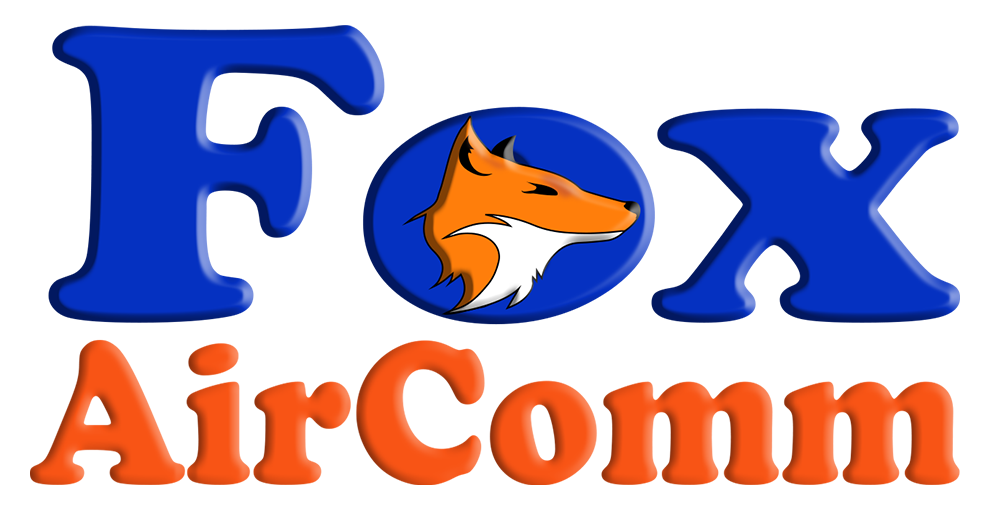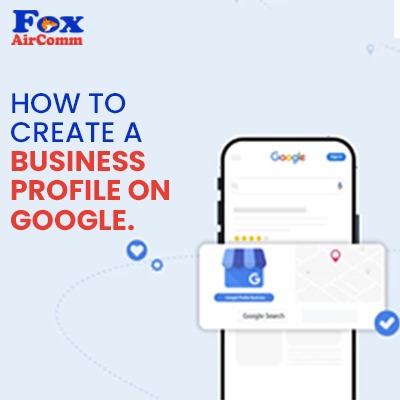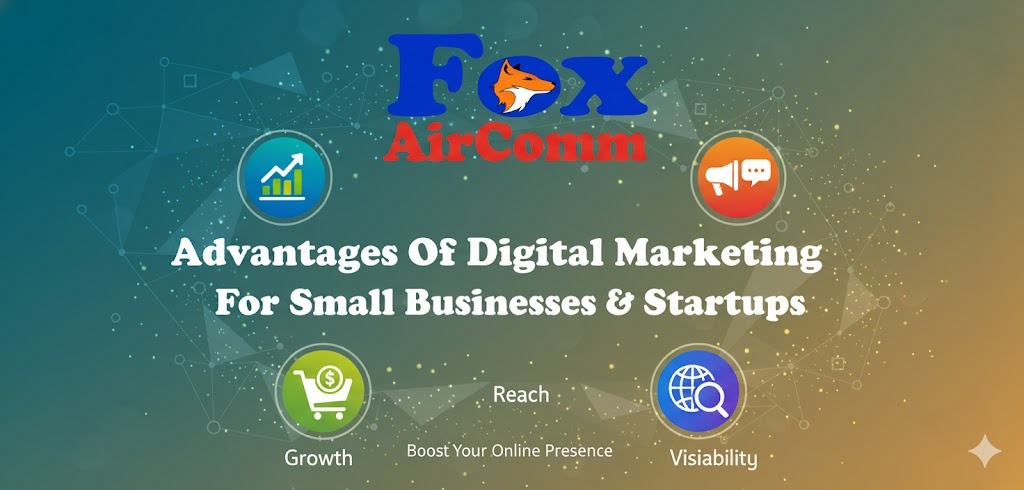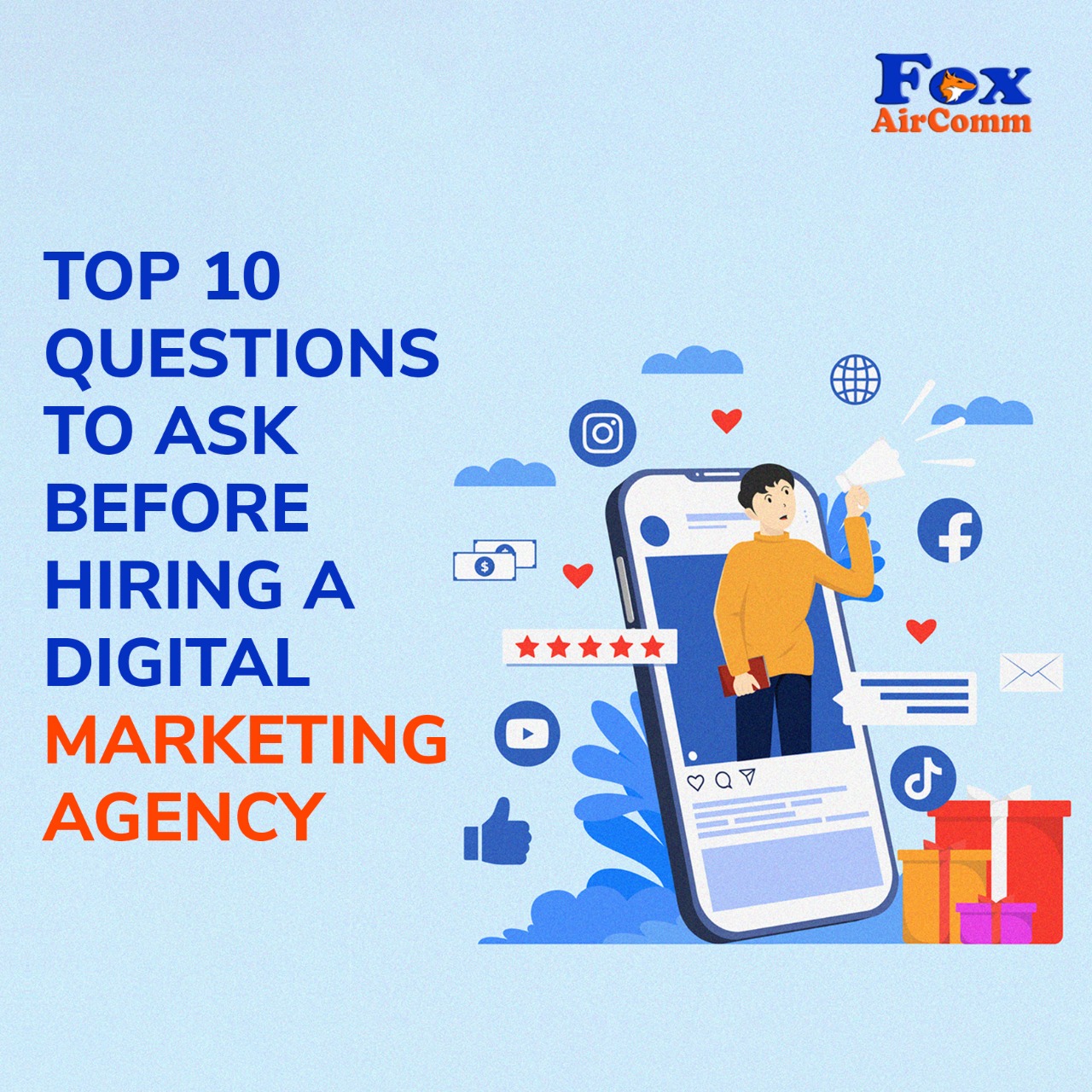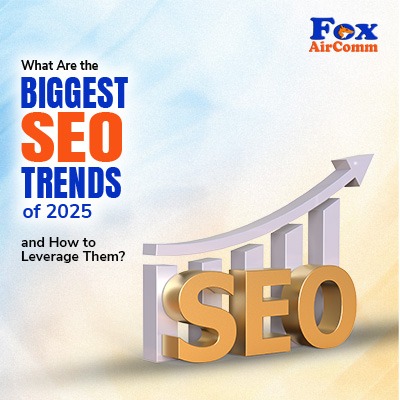
Introduction :
The era of search is evolving faster than ever. Traditional SEO methods are losing their edge as AI transforms how people find information and how search engines rank content.
The biggest SEO trends of 2025 include AI Overviews, generative engine optimization (GEO), E-E-A-T, structured data, zero-click results, and conversion-driven strategies.
To get cited in AI, focus on short, authoritative answers that AI can extract, strengthen brand authority with real expertise, adopt structured markup, track micro-conversions instead of just traffic, and adapt content for both local and global intent.
The future belongs to websites that become trusted answers — not just ranked pages with keywords.
The New Reality Of SEO in 2025 :
The one constant in the SEO process is change, but the year 2025 marks a deeper shift in history. Search is no longer limited to Google’s “10 blue links.” Instead, it’s all about being cited, surfaced, and trusted by AI- overviews, featured snippets, and local pack results.
For most businesses, the pain points are familiar.
1. You're publishing more content, but website traffic is stalled:
Due to this, it feels like you're stuck in the mud, even with a full tank of gas.
2. Users leave your sites quickly:
Your bounce rate is high because your pages aren't providing visitors with the quick, concise answers they're searching for.
3. Competitors are showing up in AI search summaries, and you're invisible:
When someone searches on Google, their query answer comes from your competitor, while your website disappears down the page.
4. You get the good impressions, but people aren't signing up or buying:
All that visibility isn't leading to real business results, and users are
not converted.
The simple truth? Just stuffing keywords in your content doesn't work
anymore.
To succeed in today's era, your website requires three things: Clarity,
Authority, and Content that's easy for AI to read and use to answer people's
questions.
Trend 1:AI is Answering User Queries Before Your Website Gets The Click:
- The biggest shift in search is that AI is stealing the spotlight.
- When people search on Google Now, they often see an AI-written summary (also known as AI-Overview) right at the zero position.
- It means many people get the query resolved without ever clicking on a single website link.
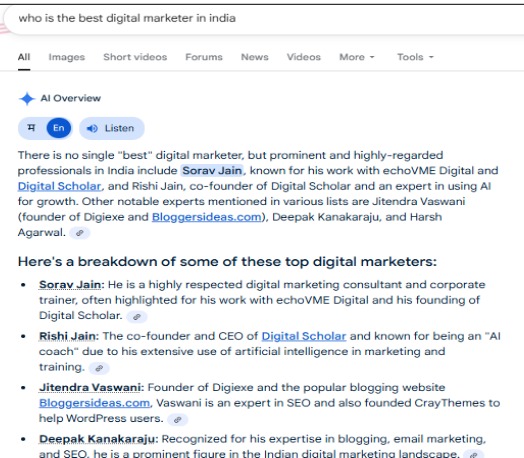
How to Stop Being Invisible in AI?
The following are the ways to create Snippet-ready content that are cited in AI panels
- Start With a Quick Answer : Every page must have a short, clear summary (approx 20-40 words or 2-3 sentences) that directly answers the main queries of the page.
- Use of Q&A style : Create the rest of the content structure of the rest page in question-answer form. This makes it easy for the AI to "grab" the text.
- Show Your Sources : The AI prefers trustworthy content. When you make a claim, back it up by citing reliable sources.
Trend 2 -Optimise For AI, Not Just For Google (Generative Engine Optimisation):
AI tools such as Gemini, ChatGPT, and Perplexity are no longer limited to chatting purposes. It's become a new search engine.
Generative Engine Optimization (GEO) refers to making your content machine-readable, structured, and authoritative.
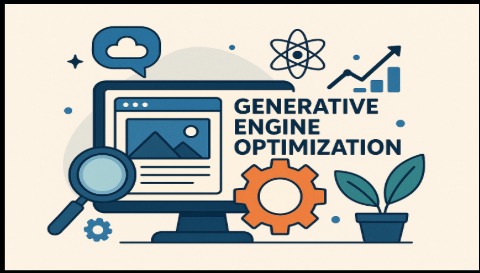
How to leverage it :
You need to structure your content so the AI sees you as the definitive expert on a topic:
Group Your Topics :
- Instead of writing any random articles, plan content in topic groups or clusters.
- Writing five detailed articles about "digital marketing training" shows the AI that you have real depth and expertise on the entire subject.
Answer First, Explain Later :
- In your content, give the direct answer instantly, and then follow up with the background and details.
- This is the format that AI models prefer when they read.
Use the Right Code :
- Use special coding (like FAQ schema and structured markup) on your page.
- This is like adding labels and tags behind the scenes that tell the AI exactly what your content is about and what question it answers.
The takeaway? You're no longer just trying to rank for a single keyword. You're aiming to dominate an entire topic, making your site the authority that AI engines simply can't ignore.
Trend 3: E-E-A-T Becomes Non-Negotiable
Google and AI are now obsessed with trust. They rely on the set of quality guidelines that highlight: Experience, Expertise, Authoritativeness, and Trustworthiness (E-E-A-T).
We can say that AI engines prefer to quote and share information from sources they know are highly reliable and reputable.
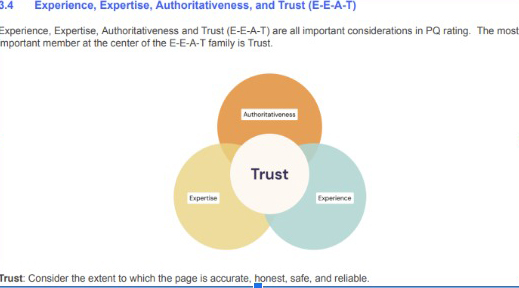
How To Leverage It :
- 1. Mention Your Expert's Details : Every Important article must include an author bio that includes their qualification or credentials.
- 2. Share Your Own Data : Don't just rewrite what others said. To establish the authority, publish original research, case studies, or proof based on your experience.
- 3. Get Vouched For : Earn mentions and backlinks (links) from other trusted, high-quality websites. This acts like a professional reference.
Trend 4: Structure Data & Technical Precision:
In 2025, SEO is both creative and technical.
The way your website is built behind the scenes is just as important as the words you write on the pages.
AI systems like a clear structure to understand your content better.
How To Make Your Site AI-Friendly?
Use Hidden Labels (Structured Data):
- Add schema or structured markup code to help separate different parts of your content.
- For example, use the FAQ schema for a question-and-answer section, or the LocalBusiness schema if you have a physical store.
- These labels help the AI understand what kind of content you have.
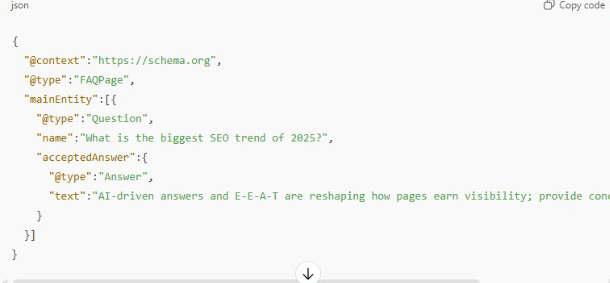
Make it Fast and Stable :
- Optimize for Core Web Vitals.
- This means your website must load quickly, respond quickly to clicks, and avoid sudden shifting of content on the screen.
- If your site is slow, both users and search engines will be unhappy, and more people will leave the site.
Keep Navigation Clean :
- Organize your site with simple menus and clear categories.
- AI loves a clean, logical structure—like a well-organized library.
The bottom line?
You can write the best content in the world, but if your site is missing
this technical structure, it won’t work well with the systems that help
modern search engines.
Trend 5: Zero-click reality & conversion-centered SEO
The way people are using search engines is changing drastically.
Thanks to AI summaries and special boxes on SERP, you will get the answer you need without clicking on a website. This means the number of clicks going to websites is going down.
Don't worry, SEO isn't dead yet. It shows that focus has been shifted.
The new goal is Conversion-Centered SEO, which means your website's main job is to convert visitors into customers or leads, even if you have fewer visitors overall.
How to Succeed in This New Environment
Instead of desperately chasing every single click, here’s how to make the most of the traffic you do get:
- Offer "Little Wins" (Micro-Conversions) : Offer people different ways to interact, like signing up for your newsletter, using a simple tool, downloading a checklist, or clicking a small "Contact Us" button (CTA). These small actions add value immediately.
- Keep People Engaged : Your website design must be interesting and interactive so visitors want to scroll down and spend time on your site.
- Measure What Really Matters :
Stop focusing only on how many people visit. Start tracking things like:
- How far do they scroll down the page?
- How long they stay on the page (dwell time).
- How many forms do they fill out?
- How many calls do they make to your business?
The Bottom Line: In 2025, winning isn't about getting a million clicks; it's about ensuring that the fewer people who visit your site are much more likely to take a valuable action.
Trends 6: Hyperlocal SEO meets Generative SEO
- The way people search for local businesses is getting updated with Generative AI.
- When someone asks an AI engine (like Google's AI Overview) a local question, the AI doesn't provide you general answer.
- It specifically looks for local information from details like business listings, customer reviews, and special website code.
- This means if you're a local business, your success now depends on factors AI can easily find and understand who you are and where you are.
How to Get Your Local Business Found by AI
To make sure your local business shows up in these smart, new AI answers, focus on these simple steps:
- Optimise Your Google Business Profile (GBP) : Consider your Google Business Profile as your new homepage. Always keep all the information updated: hours, address, services, and photos. Also, actively encourage and manage customer reviews.
- Answer Local Questions Directly : Give thought to the questions local customers ask, like "Who is the best dentist near me?" or "What are the hours for the best bakery in town?" After this, include Frequently Asked Questions (FAQs) on your website that directly answer those location-specific queries (e.g., "Best cardiology services in Pune?").
- Use the Secret Code (Schema) : Add special code to your website called GeoCoordinates and LocalBusiness Schema. This code tells AI tools your exact location (latitude and longitude) and that you are a local business, making your relevance unmistakable.
The Bottom Line: By doing this, you're not just trying to compete with everyone on the internet; you are making sure you are the number one, most relevant choice for people searching in your neighborhood or city.
Conclusion :
The biggest SEO trends of 2025 are less about chasing traffic and more about earning trust, clarity, and authority in a world where AI delivers answers before users click. If your content is concise, authoritative, structured, and conversion-focused, you’ll not only survive the shift — you’ll lead this competitive world.
